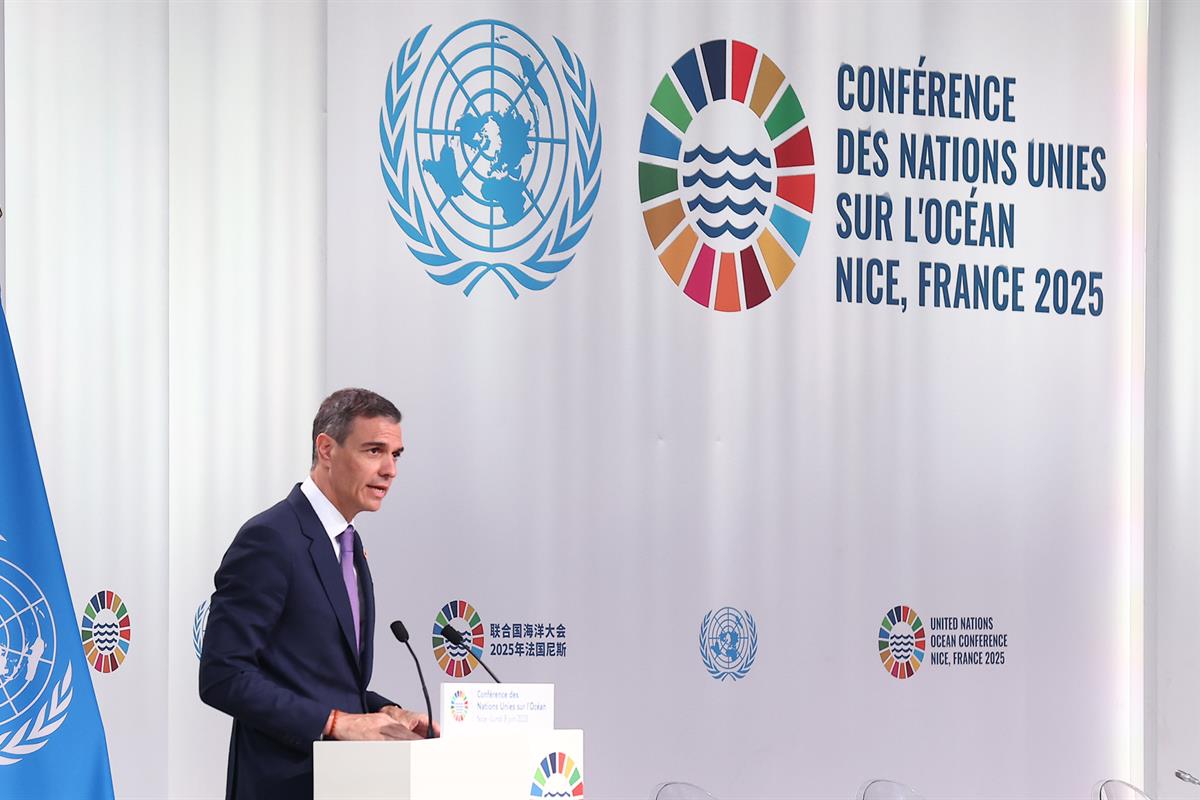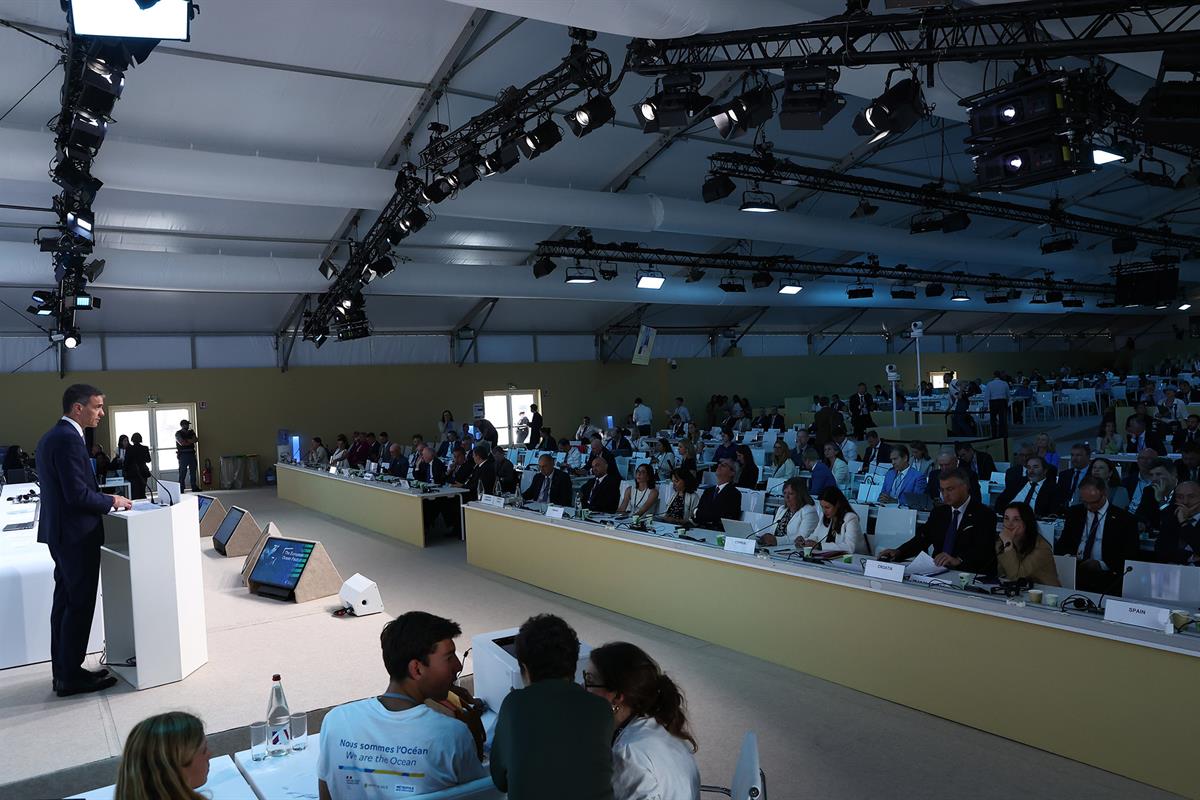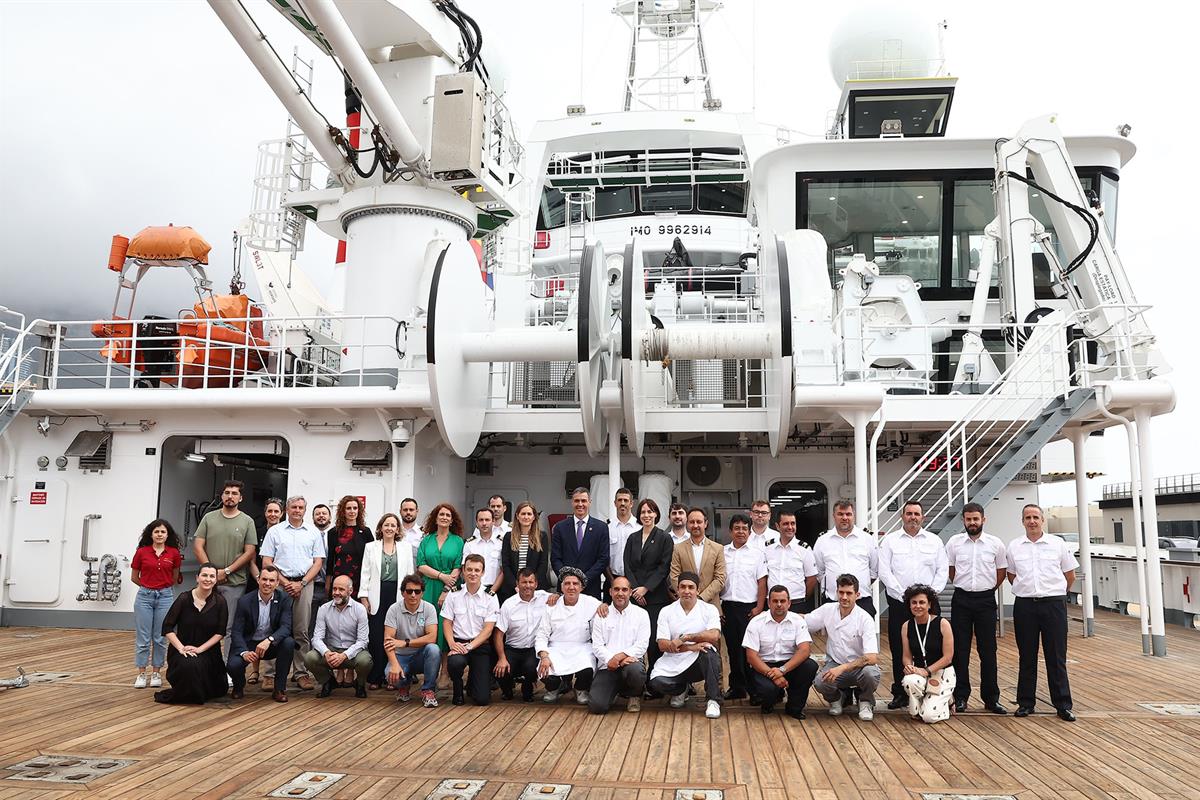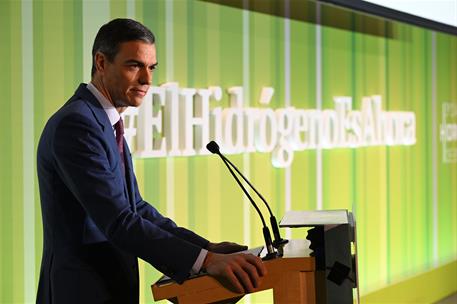Third UN Oceans Conference
The President of the Government of Spain announces that the number of protected areas along the Spanish coastline will exceed 25%
President's News - 2025.6.9
Nice (France)
 The President of the Government of Spain, Pedro Sánchez, speaks at the plenary session of the United Nations Oceans Conference (Pool Moncloa/Fernando Calvo y Pool NU)
The President of the Government of Spain, Pedro Sánchez, speaks at the plenary session of the United Nations Oceans Conference (Pool Moncloa/Fernando Calvo y Pool NU)
The President of the Government of Spain, Pedro Sánchez, has announced that Spain is to move forward with the creation of new protected areas on its coastline, which will result in "protection for 25.7% of our sea, 5.8% more than in 2023, and moves us closer to our pledge to reach 30% by 2030". He made the announcement during his address to the plenary session of the Third United Nations Ocean Conference (UNOC3), which is being held in Nice, France.
The new protected areas, which will become part of the Natura 2000 Network, are the Mallorca Channel seamounts, the Seco de Palos seamounts and field of pockmarks, the Capbreton tributary canyon systems, the banks and gorges of the Alboran Sea and the Central Catalan Coast Marine Area. In addition, the sperm whale breeding area in the north of Menorca and the Mar de las Calmas National Park are also set to become marine protected areas in the coming months.
During his speech, the President of the Government of Spain defended the importance of the seas and oceans as "the long-term memory of our planet's climate", a memory that "is weakening, year by year, as a result of the climate emergency". He therefore urged participating countries to adopt concrete protection measures, but also to "back up policies with sufficient resources". In this regard, Pedro Sánchez also stressed that Spain "will be making a new contribution of €8.5 million to the Blue Mediterranean Partnership Cooperation Fund. This will make us the largest donor to this initiative.
The President of the Government of Spain emphasised Spain's involvement in the protection of seas and oceans, highlighting that Spain was the first country in the European Union to ratify the Agreement on the Conservation and Sustainable Use of Marine Biological Diversity of Areas beyond National Jurisdiction, that we advocate a precautionary pause so that no seabed mining plan can be approved until there is a regulation that ensures the protection and conservation of these ecosystems, and Spain's imminent presidency of the Convention for the Protection of the Marine Environment of the North-East Atlantic, the most important convention in the world in the field of conservation.
European Ocean Pact
 The President of the Government of Spain, Pedro Sánchez, speaks at the presentation of the European Ocean Pact | Pool Moncloa/Fernando Calvo y Pool NU
The President of the Government of Spain, Pedro Sánchez, speaks at the presentation of the European Ocean Pact | Pool Moncloa/Fernando Calvo y Pool NU
Pedro Sánchez also took part in the presentation of the European Ocean Pact, approved by the European Commission last Thursday. This initiative, which brings together in a single instrument all European policies relating to the oceans and aims to adopt an Oceans Regulation by 2027, will make it possible to "better protect marine life, support coastal areas and strengthen our thriving blue economy", in the words of the President of the Government of Spain.
Pedro Sánchez has urged European partners to commit to the oceans, to enhance knowledge of the marine environment, to promote governance and technology for the management and protection of the oceans, and to place coastal populations at the centre of political action: "Forty per cent of the Spanish population, around 19 million people, live in coastal municipalities. It is crucial to guarantee their resilience and sustainability", said Pedro Sánchez, who emphasised that "it is important that this pact is not just a commitment on paper, but a promise in action, for our oceans, for our citizens and for future generations".
Visit to the Odón de Buen ship
 Pedro Sánchez, accompanied by the Third Vice-President and Minister for Ecological Transition and Demographic Challenge, Sara Aagesen, and the Minister for Science, Innovation and Universities, Diana Morant, during his visit to the Odón de Buen ship | Pool Moncloa/Fernando Calvo y Pool NU
Pedro Sánchez, accompanied by the Third Vice-President and Minister for Ecological Transition and Demographic Challenge, Sara Aagesen, and the Minister for Science, Innovation and Universities, Diana Morant, during his visit to the Odón de Buen ship | Pool Moncloa/Fernando Calvo y Pool NU
The President of the Government of Spain also visited the new flagship research vessel of the Spanish scientific fleet, the multi-disciplinary oceanographic vessel Odón de Buen, which took part in a parade of oceanographic vessels organised in Monaco on the occasion of World Oceans Day and UNOC3. This vessel, specially designed to be silent and thus generate the minimum impact on marine organisms, will be used to support the work of the Centro Superior de Investigaciones Científicas in the study of marine protected areas and vulnerable habitats that enables Spain to implement its commitments to protect maritime spaces.
Pedro Sánchez, accompanied by the Third Vice-President and Minister for Ecological Transition and Demographic Challenge, Sara Aagesen, and the Minister for Science, Innovation and Universities, Diana Morant, spoke with the crew and toured the ship, which has a capacity for 58 passengers and an autonomy of 50 days at sea, as well as almost two additional weeks of operation using liquefied natural gas.
Bilateral with Costa Rica
The President of the Government of Spain, Pedro Sánchez, and Costa Rican President, Rodrigo Chaves, during their bilateral meeting in Nice | Pool Moncloa/Fernando Calvo y Pool NU
The President of the Government of Spain also held a bilateral meeting in Nice with the President of Costa Rica, Rodrigo Chaves. During the meeting, the two leaders noted the alignment of the two countries in terms of promoting multilateralism and environmental and sustainability policies. Pedro Sánchez also thanked him for his country's role in the organisation of the UNOC3, which Costa Rica co-chairs with France.
Non official translation







